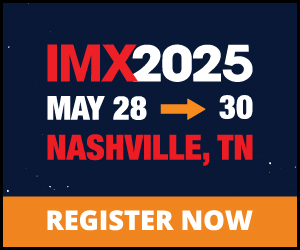Washington, D.C.—The Maritime Administration would receive $2.5 billion to support more sustainable port infrastructure and supply chain resilience as part of a House panel’s portion of a budget reconciliation plan Democratic leaders hope to push across the finish line in the coming days.
Advanced on a 37–29 vote by the House Transportation and Infrastructure Committee, the legislation would provide nearly $60 billion that supporters say would make the nation’s infrastructure more sustainable, resilient and equitable and reduce carbon pollution.
It also includes $1 billion for climate-resilient Coast Guard infrastructure.
Other committees also have been putting together final details on their portions of the reconciliation legislation that currently is expected to have a $3.5 trillion price tag.
That is but one of the challenges the entire effort still faces.
Senate Democrats must be united to win approval of the package in their evenly divided chamber, and they appear to be at least two votes short of that goal with the cost a major sticking point.
Sen. Joe Manchin (D-W.Va.) said on NBC’s Meet the Press he was a hard no on the $3.5 trillion figure.
Several days later, Manchin and Sen. Kyrsten Sinema (D-Ariz.), another holdout, met separately with President Joe Biden.
“The president certainly believes there will be ongoing discussions,” White House press secretary Jen Psaki told reporters.
Also at stake is a trillion-dollar bipartisan infrastructure bill, which includes $17 billion for ports and waterways.
Despite bipartisan support, that bill’s fate appears tied to that of the reconciliation proposal.
Users Board Membership
A zero-based review (ZBR) ordered by Defense Secretary Lloyd Austin did not propose any changes to the Inland Waterways Users Board (IWUB), said Eugene Pawlik, spokesman for the U.S. Army Corps of Engineers.
“The intent is to resume the operations of the Users Board as before the ZBR,” Pawlik said.
In perhaps something of a head start, nominated candidates for membership rom a request published in the Federal Register before the ZBR were used in the development of membership recommendations.
“USACE is awaiting final approval of the recommended membership to resume the Users Board activities,” Pawlik said.
“USACE considers this a high priority and intends to schedule the next board meeting as soon as practicable based on availability of members and USACE leadership.”
All 11 positions of the board were vacated by Austin’s action, so the entire board will have to be named, he said.
Pawlik said it remained unclear whether the first meeting of the new board will be virtual or in-person.
Mariner Survey
The Maritime Administration (MarAd) invited public comments on its intention to seek approval for a Mariner Survey Pre-Test for collection of cognitive interviews and a pilot survey of a sample of U.S. merchant mariners to validate and improve a design for a subsequent Mariner Survey.
Written comments should be submitted by November 15, but MarAd stated it will consider comments filed after that date to the extent practicable.
Comments may be submitted at www.regulations.gov, mail to Docket Management Facility, U.S. Department of Transportation, 1200 New Jersey Ave. SE, Room PL–401, Washington, D.C. 20590–0001 or hand deliver to Room PL–401 between 9 a.m. and 5 p.m., Monday through Friday, except federal holidays.
For additional information, contact Nuns Jain at 757-322-5801.
Great Lakes Pilotage Rates
The Coast Guard proposed new Great Lakes base pilotage rates for the 2022 shipping season and changes to a policy to always round up in the staffing models and methodology to factor in an apprentice pilot’s compensation benchmark for the estimated number of apprentice pilots with a limited registration.
According to estimates, this proposed rule would result in a 12 percent increase in pilotage operating costs compared to the 2021 season.
Comments and related material must be received by October 14 and may be submitted at www.regulations.gov.
For additional information, contact Commandant Brian Rogers at 202-372-1535.
Electro-Technical Rating
The Coast Guard announced the availability of Change 3 to Navigation and Vessel Inspection Circular (NVIC) 24–14: Guidelines on Qualification for STCW Endorsements as Electro-Technical Rating (ETR) on Vessels Powered by Main Propulsion Machinery of 750 kW/1,000 HP or More.
“This NVIC provides guidance to mariners concerning STCW endorsements for ETR, including training and qualifications,” the Coast Guard stated in the Federal Register.
“This change notice revises NVIC 24–14 to indicate that the Coast Guard will allow mariners to qualify for an STCW endorsement as ETR without completing approved training for high voltage systems or computer systems and maintenance.”
Change-3 to NVIC 24–14 took effect August 26.
For additional information, contact James Cavo at 202-372-1205.
Shipping Act Violations
The Federal Maritime Commission (FMC) voted to issue a policy statement on issues affecting the ability of shippers, truckers and others to obtain reparations for conduct violating the Shipping Act, including acts related to demurrage and detention.
Guidance will be provided on the scope of the prohibition against carrier retaliation, when attorney fees may be imposed on a non-prevailing party and who may file a complaint alleging unreasonable conduct, the FMC stated.
In due course, the FMC said it will issue an Advance Notice of Proposed Rulemaking (ANPRM) to solicit comments on whether it should require ocean common carriers and marine terminal operators (MTOs) to include minimum information on or with demurrage and detention billings and whether to require carriers and MTOs to adhere to certain practices regarding the timing of demurrage and detention billings.
Both initiatives were proposed by Commissioner Rebecca Dye as part of Fact Finding 29 and required formal FMC approval.
The FMC said it has moved forward with other recommendations from FF29 and will make announcements on other recommendations as developments warrant.




